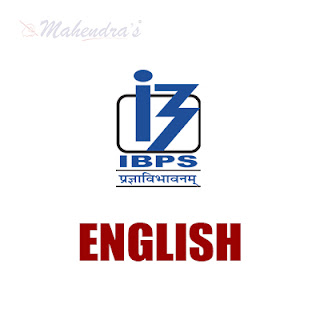Read the following passage carefully and answer the questions given below it. Certain words have been printed in bold to help you locate them while answering some questions.
A recent report titled ‘Women and Children in India’ and a nearly simultaneous report on ‘Indian Women- their health and economic productivity’ highlight the international importance being given to the problems of the progress of Indian women.
Unfortunately, both the reports fail to either convey a fresh understanding of the issue or to suggest innovative and workable approaches for women’s development. The former is because the reports restrict themselves to old statistics. We are told, for example, that the ratio of women to men remains below its natural level and that it is related to other parameters, such as the level of literacy and the availability of primary health care.
The failure to suggest a fresh approach is less understandable given that a variety of approaches to women’s development has been tried out all over the world. In India, the state has made a strong political and economic commitment to women. In 1990, the National Commission of Women was established. In 1989, two major policy documents were released. Ever since the Sixth Five Year Plan, there has been a special section on socio-economic programmes for women. Poverty alleviation programmes have a 30 per cent target for women. Special programmes like Development of Women and Children in Rural Areas have also been started.
These governmental and other approaches have had mixed results. For example, SEWA’s (Self Employed women’s Association) and WWF’s (Working Women’s Forum) approach of using bank credit to organize self-employed women has worked well. So also women’s literacy programmes in Kerala. On the other hand, some of the legislated reforms like dowry prohibition have not worked well. The issue of whether women should be identified as separate participants in the development process is also controversial.
In this context, it is disappointing to read in one of the reports that one of the government’s targets for 1991-95 ought to be foster ‘An ethos of caring in the community, not to let a child ‘go to bed hungry,’ be subjected to a preventable disease or remain without learning opportunity- this could mark the beginning of a social process towards a more humane order’ is the report saying then the Indians don’t love their children as a matter of policy makers, It is very unfortunate that these reports have become superficial and don’t delve sufficiently deep into the problems.
1. Which of the following is correct in the context of the passage in regard to development schemes?
(1) All people are of the opinion that women should be given special status
(2) Some people hold the opinion that women should not be given special status
(3) No one feels that women should be given special status
(4) There is no controversy regarding women being given special status
(5) Both 2 and 4
2. Which of the following is specifically put forward as a reason for the unequal sex ratio in the population?
(1) Natural causes
(2) Economic development
(3) Literacy level
(4) Socio-economic programmes
(5) Financial reasons
3. Which of the following is not put forward by the author as a defect of the reports?
(1) They highlight the problems of Indian women
(2) They contain outdated statistical data
(3) The reports have not suggested any new measures
(4) Some of them suggested many new measures
(5) Both 3 and 4
4. Which of the following is true in the context of the passage?
(A) Culturally, Indians don’t love their children
(B) All developmental programmes and schemes are generally a success
(C) Indian women don’t manage their finances well
(1) Only A
(2) Only B
(3) Only C
(4) Both A and B
(5) None of the above
5. Why does the author say that the reports are unable to convey a ‘fresh understanding of the issues’?
(1) The problems are dealt with superficially
(2) Old data are used in the reports
(3) Some of the development schemes are not dealt with
(4) Indian problems cannot be understood by foreigners
(5) All of the above
6. Which of the following is false according to the passage?
(1) The problem of women in general is in attention the world over
(2) National Commission of Women is an attempt for women’s development
(3) Indian people love their children and try to take care of them
(4) Right from independence, women have been receiving special attention for development
(5) Only 2 and 4
7. Which of the following has not been mentioned as necessary, in one of the reports, to start new social order?
(1) Prevent hunger of children
(2) Prevent disease in children
(3) Increase educational opportunities
(4) Community care of children
(5) All except 4
8. Which of the following would indicate the same meaning as the phrase ‘go to bed hungry’ as it has been used in the passage?
(1) Malnutrition
(2) Insomnia
(3) Famine
(4) Undernourishment
(5) Indisposition
9. Choose the word most SIMILAR in meaning to the word printed in bold, as used in the passage.
TARGET
(1) Aim
(2) Margin
(3) Attempt
(4) Quota
(5) Goal
10. Choose the word most SIMILAR in meaning to the word printed in bold, as used in the passage.
MARK
(1) Symbol
(2) Sign
(3) Distinguish
(4) Notice
(5) Notice
Answers
1. (2) 2. (3) 3. (1) 4. (5) 5. (2) 6. (4) 7. (3) 8. (4) 9. (4) 10. (3)







0 comments:
Post a Comment
MAHENDRA GURU